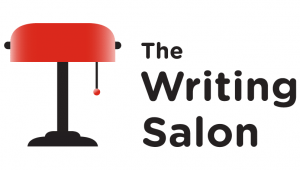How would you describe your teaching style?
I’m a first-generation Bay Area Mexican American millennial, and many of my students often tell me that I’m laid back and extremely caring—or that they haven’t had many teachers like me. I think because of how I grew up and what school was like for me as a young male (academically struggled, almost flunked, went to community college), I am hyper-attentive to my student’s needs, and I get genuinely inspired and motivated by the success of my students. I love to see everyone reach their potential, because I myself have had to take that long, uncertain journey over many years to reach this point—with the help of tremendous teachers and mentors to guide my transformation. I don’t see myself as the indisputable holder of information; rather, I see myself as a curious facilitator with many questions and ideas to offer, and I like to experience the alchemy of learning alongside my insightful students.
Your next Writing Salon class is “Reading Latinx Poetry, Writing Our Truths.” When it comes to designing and creating classes, where do you get your inspiration? What in particular moved you to create this class?
I’m inspired by everything: playing basketball, watching anime cartoons, listening to hip hop, attending art galleries, cooking. I mix everything at all times and look for those unique intersections that can merge into something new and exciting. I actively try not to limit myself and always have my radar open for something new to galvanize me and my writing/teaching practice. When I created the concept for this course, I was thinking about how there aren’t enough poetry courses that focus on young, contemporary Latinx voices, and what those voices can teach us about our own cultures and backgrounds. Latinx in itself is such a layered term, and I’ve had the privilege to travel to and learn about various Spanish-speaking diasporas–from Cuba and Puerto Rico, to Brazil and Bolivia, and many more (even had the chance to live as a dual citizen with my family in Mexico in 2019). As a Mexican-heritage person, I’ve realized that my identity exists within a vast spectrum of Latinidad, and that there is incredible nuance among our peoples. I wanted to sift through those layers in an intentional and critical way, and in doing so, allow it to inform our own writing, no matter what cultural roots we have.
You’re about to drop your third collection of poetry. What were some of your influences while writing? Can you tell us about your process for writing this book?
Notes from the Eastern Span of the Bay Bridge was, at its core, generated from a sense of loss and elegy. I grew up in the Bay Area, and seeing it change over the years with the arrival of tech money and other forms of economic and racial shifts have made it harder for locals to “survive” here–culturally and socioeconomically speaking. A lot of my childhood friends and family members have had to leave because they can no longer afford living here. I wanted to write about that, but not in a “preaching to the choir” sort of way, but in an experimental, and poetic sense. So I took on the persona of the eastern span of the Bay Bridge–the original, which was torn down in 2015 for the new one to be built–because it felt like such an emblematic symbol of the literal deconstruction of this region for newer and prettier things to be built in their place. I wrote it while riding on the BART, hiking along the East Bay, hanging out with friends in my neighborhood, listening to my favorite Bay Area rappers, and researching the history of how the Bay Bridge was constructed and why it was dismantled. Since it’s my third collection, I wanted to move away from my literal identity, and sort of zoom out to investigate the changing identity of a landscape.

Alan Chazaro is the author of This Is Not a Frank Ocean Cover Album (Black Lawrence Press, 2019), Piñata Theory (Black Lawrence Press, 2020), and Notes from the Eastern Span of the Bay Bridge (Ghost City Press, 2021). He is a graduate of June Jordan’s Poetry for the People program at UC Berkeley and a former Lawrence Ferlinghetti Fellow at the University of San Francisco. He writes about sports, food, art, music, education, and culture while repping the Bay on Twitter and Instagram at @alan_chazaro.

Alan Chazaro is the author of This Is Not a Frank Ocean Cover Album (Black Lawrence Press, 2019), Piñata Theory (Black Lawrence Press, 2020), and Notes from the Eastern Span of the Bay Bridge (Ghost City Press, 2021). He is a graduate of June Jordan’s Poetry for the People program at UC Berkeley and a former Lawrence Ferlinghetti Fellow at the University of San Francisco. He writes about sports, food, art, music, education, and culture while repping the Bay on Twitter and Instagram at @alan_chazaro.
